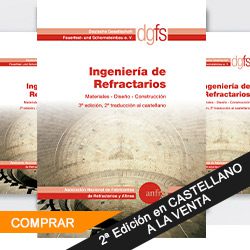Segunda revisión de las medidas de salvaguardia
La Comisión acaba de publicar la segunda revisión de las medidas de salvaguardia
Recientemente, la Comisión Europea ha publicado la segunda revisión de las medidas de salvaguardia contra las importaciones de productos siderúrgicos y de primera transformación, las cuales expirarán el 30 de junio de 2021. El reglamento, en vigor desde el 1 julio, ha introducido novedades importantes que tratan de adaptarlo a la realidad actual. Entre todas, me gustaría destacar las siguientes:
Administración general de los contingentes
Con el objetivo de garantizar la estabilidad de los flujos comerciales, la Comisión ha modificado la administración de los contingentes específicos por país. Ahora, la gestión es trimestral en vez de anual. Con ello se pretende evitar la desestabilización en el mercado que provoca el comportamiento oportunista que mostraron ciertos países exportadores, al agotar sus contingentes al poco de abrirlos, incluso en menos de un día.
Sin embargo, esta situación sigue produciéndose: en el tercer trimestre, Rusia ha agotado su contingente de tubos estructurales (categoría 21) en apenas una semana, al igual que Turquía en el caso del carril (19). De hecho, el país otomano ha consumido prácticamente la totalidad de sus contingentes de corrugado (13) y alambrón no inoxidable (16); similar al caso de China en las chapas galvanizadas no sujetas a antidumping (4B).
Ajustes específicos en ciertas categorías de productos
En paralelo, la Comisión también ha revisado los contingentes de tres categorías de productos, ajustándolos a la situación del mercado:
- En el caso de la bobina laminada en caliente no inoxidable (categoría 1), se aplica un contingente específico por país. También se impone la limitación del 30 % del uso del contingente residual en el último trimestre.
- En las bobinas laminadas en caliente inoxidables (categoría 8), los contingentes específicos por país se trasladan al residual[1]. Por tanto, desde el 1 de julio de 2020 el contingente de esta categoría es global y se administra trimestralmente.
- La categoría 25 (tubos soldados de gran diámetro) se ha dividido en dos subcategorías, aquellos tubos que se dirigen a los grandes proyectos de ingeniería (25A) y los demás (25B). En el primer caso el contingente es global, mientras que, en el segundo, los contingentes lo constituyen las asignaciones específicas por país junto el residual.
- Sobre la categoría 4B (chapas galvanizadas destinadas a la automoción), la Comisión ha decidido no aplicar ningún mecanismo nuevo (p. ej. la reintroducción del mecanismo de destino final), si bien estableció la limitación del 30 % de la utilización del residual en el último trimestre.
Acceso al contingente residual
Con el fin de evitar el desplazamiento de los flujos tradicionales, la Comisión ha refinado la u
tilización del residual del cuarto trimestre por parte de los países sujetos a contingentes específicos. Para ello, se constituyen tres regímenes, como se puede ver en la siguiente tabla:
En el primer régimen, a los países que disfrutan de un contingente específico no se les concederá acceso adicional. En el segundo, el acceso se limitará a los volúmenes que excedan “el promedio del contingente utilizado por los países proveedores de menor tamaño durante los cuatro trimestres”, mientras que en el tercer régimen se mantienen las mismas condiciones de acceso. Por último, las categorías que se han modificado específicamente disfrutan de un régimen especial (véase la sección anterior).
Apuntes finales
Estas son, junto la actualización del listado de países en desarrollo, las novedades más relevantes que ha introducido la regulación. UNESID agradece la colaboración de las autoridades nacionales en el procedimiento.
Sin entrar a valorar el segundo ajuste de las medidas de salvaguardia, me gustaría hacer algunos comentarios que pueden resultar de interés.
En primer lugar, resaltar que, a diferencia de la Sección 232 en Estados Unidos, las salvaguardias no han limitado la llegada de importaciones. En su análisis, la propia Comisión señaló que, en el último trimestre del segundo año, seguían sin utilizarse 9 millones de toneladas de contingentes.
Es decir, el acero y los tubos han seguido circulando por el mercado único. Como se puede observar en el siguiente gráfico, en 2020 el volumen de importación en España procedente de países terceros se ha mantenido entre los más elevados de los últimos años.
Las medidas de salvaguardia son un instrumento que pretende evitar el daño irreparable que supone la desviación del comercio que está provocando el cierre del mercado estadounidense. ¿Serán estos ajustes suficientes en el contexto actual, especialmente cuando ciertos países han mantenido su actividad siderúrgica a pesar de la paralización de la economía mundial?
[1] Esto se debe a la imposición provisional de antidumpings a la mayoría de países que se beneficiaban de un contingente específico (China, Indonesia y Taiwán).

Alejandro Arnao Solera
Estudios Económicos










